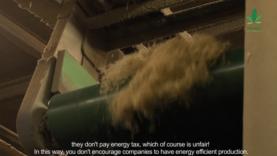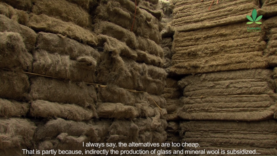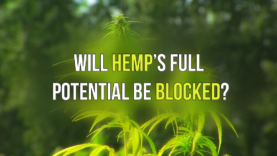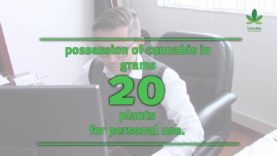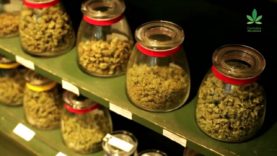Hemp, booming business, more difficult than you think.
Hemp, it is a booming business, you would say. But, as we showed in our last report, hemp producers are facing problems they never encountered before and CBD, as being the main ingredient of the enormous demand, is still a questionable product in most countries. Like the UK.
“Instead of capitalizing on the booming CBD industry, the Home Office’s bureaucracy is leading British farmers to destroy their own crops, and millions of pounds’ worth of CBD flowers are being left to rot in the fields.”
Source: https://www.bbc.com/news/business-49082533
Hemp is booming. Take the number of hectares of industrial hemp in Europe, growing from 8,000 in 2011, to 33,000 in 2015 and 47,000 in 2017.
One company that has survived the “prohibition” era and is now world leader in hemp production is the Dutch company Hempflax, celebrating its 25th anniversary.
It’s no secret that HempFlax suffered major losses in their early, pioneering years, but those days have gone. HempFlax has grown from 140 hectares of industrial-fibre hemp cultivation in 1994 to 2500 hectares in 2017, and it is expected to cultivate as many as 3,500 hectares by 2020.
Ben Dronkers founded HempFlax in 1993 mainly to prove to all the skeptics that hemp could be a modern industrial crop.” Dronkers had been active in the cannabis industry for decades, and he knew the extent to which hemp had been used for industrial purposes in the past.
He knew the hemp plant can benefit mankind and planet earth in countless ways: it can feed us, clothe us and heal us, it can clean our soil, replace most of our plastic and we can use it to build our homes and even as fuel.
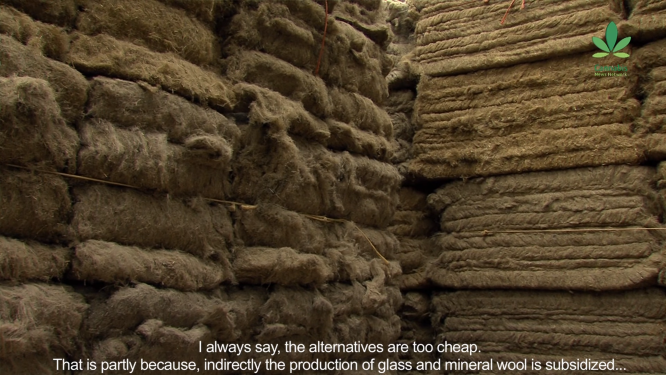
“When we started operations in the early ‘90s, nobody knew how to harvest or process hemp because the crop had been forbidden for 60 years,” Mark Reinders, (CEO Hempflax) recalled. As a result, no technological advancements for harvesting and turning hemp into products had been made for decades.
“We first tried to process hemp in a flax mill on a traditional flax scutching line (the genesis of “Flax” in the company’s name),” Reinders said. “Very soon we found out that hemp processing needed specialized technology” – technology robust enough to handle what’s generally considered to be the toughest of nature’s fibers.
“Being a pioneer is hard and expensive work,” Reinders said looking back over the company’s two-and-a-half decades in business.
“We embrace and promote the philosophy of the circular economy,” an economic system aimed at minimizing waste while maximizing raw materials, Reinders said.
“We do a lot to stimulate awareness of hemp’s possibilities among entrepreneurs around the world. In this way, we contribute to the sustainability of their companies too,” he added.
Hempflax is going public and will issue shares at the London stock exchange later this year. Talking to Cannabis News Network, Ben Dronkers said: “I’m not a stock exchange person. It’s not my thing. But in the whole world, you can see the big investment money is coming in. And cannabis needs it.”
The Canadian cannabis giant Aurora recently bought Lithuanian company AgroPro, Europe’s biggest producer, processor, and supplier of hemp and hemp products and its sister company Borela. Back in 2017, the company invested in Hempco, a Vancouver-based maker of hemp-based foods, hemp fiber, and hemp nutraceuticals. Hempco also supplied Aurora with raw hemp for extracting CBD.
Due to the enormous capital, Aurora is able to invest in research. Now they have planned in partnership with the UFC (Ultimate Fighting Championship) to conduct clinical trials on the use of CBD in elite athletes and then employ the results to develop a line of hemp-derived CBD topical treatments targeting elite athletes. Large companies such as Aurora will give a boost to the development of the market.
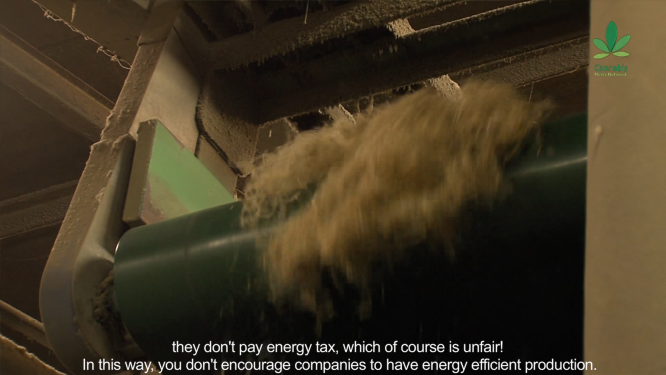
What worries Ben Dronkers is that the activists and the people who have worked with cannabis for decades prior to legalization are being left or even pushed out of the legal industry. Dronkers: “I really believe that cannabis is a medicine, it’s a beautiful plant, it’s food, it should grow in every garden. You should be able to grow your own medicine. If you have a plant in your garden, the stock market and the big companies can do what they want. I still believe in the soul, in the spirit of cannabis and that it should be for everybody. It should be totally legal.”
To overcome all the regulatory problems, creating a fair and standardized market, a strong lobby from the hemp industry is necessary to deal with the tremendous bubble of the medicinal cannabis industry and counterproductive policies of governments.
Source: https://hemptoday.net/hempflax-25-years/
Update on the Portugal story:
Jürgen Simon: “I thank you a lot for all your hard work. We talked to the parliamentary group of one of the ruling parties in Portugal on Tuesday and made them aware of the situation. They promised to bring the matter before the parliament.”













